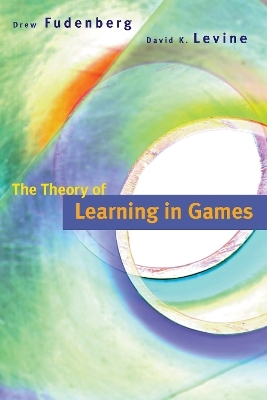
The Theory of Learning in Games
Seiten
1998
MIT Press (Verlag)
978-0-262-06194-0 (ISBN)
MIT Press (Verlag)
978-0-262-06194-0 (ISBN)
- Keine Verlagsinformationen verfügbar
- Artikel merken
This work explains that equilibrium is the long-run outcome of a process in which non-fully rational players search for optimality over time. The models they explore provide a foundation for equilibrium theory and suggest ways for economists to evaluate and modify traditional equilibrium concepts.
In economics, most noncooperative game theory has focused on equilibrium in games, especially Nash equilibrium and its refinements. The traditional explanation for when and why equilibrium arises is that it results from analysis and introspection by the players in a situation where the rules of the game, the rationality of the players, and the players' payoff functions are all common knowledge. Both conceptually and empirically, this theory has many problems.
In The Theory of Learning in Games Drew Fudenberg and David Levine develop an alternative explanation that equilibrium arises as the long-run outcome of a process in which less than fully rational players grope for optimality over time. The models they explore provide a foundation for equilibrium theory and suggest useful ways for economists to evaluate and modify traditional equilibrium concepts.
In economics, most noncooperative game theory has focused on equilibrium in games, especially Nash equilibrium and its refinements. The traditional explanation for when and why equilibrium arises is that it results from analysis and introspection by the players in a situation where the rules of the game, the rationality of the players, and the players' payoff functions are all common knowledge. Both conceptually and empirically, this theory has many problems.
In The Theory of Learning in Games Drew Fudenberg and David Levine develop an alternative explanation that equilibrium arises as the long-run outcome of a process in which less than fully rational players grope for optimality over time. The models they explore provide a foundation for equilibrium theory and suggest useful ways for economists to evaluate and modify traditional equilibrium concepts.
Drew Fudenberg is Professor of Economics at MIT. David K. Levine is John H. Biggs Distinguished Professor of Economics at Washington University, St. Louis.
Fictitious play; replicator dynamics and related deterministic models of evolution; stochastic fictitious and mixed-strategy equilibria; adjustment models with persistent randomness; extensive-form games and self-confirming equilibrium; Nash equilibrium, large population models, and mutations in extensive-form games; sophisticated learning.
| Reihe/Serie | Economic Learning and Social Evolution |
|---|---|
| Verlagsort | Cambridge, Mass. |
| Sprache | englisch |
| Maße | 152 x 229 mm |
| Gewicht | 544 g |
| Themenwelt | Mathematik / Informatik ► Mathematik ► Angewandte Mathematik |
| Mathematik / Informatik ► Mathematik ► Finanz- / Wirtschaftsmathematik | |
| Wirtschaft ► Allgemeines / Lexika | |
| Wirtschaft ► Volkswirtschaftslehre ► Ökonometrie | |
| ISBN-10 | 0-262-06194-5 / 0262061945 |
| ISBN-13 | 978-0-262-06194-0 / 9780262061940 |
| Zustand | Neuware |
| Haben Sie eine Frage zum Produkt? |
Mehr entdecken
aus dem Bereich
aus dem Bereich
Buch | Softcover (2024)
Springer Vieweg (Verlag)
CHF 62,95
Anwendungen und Theorie von Funktionen, Distributionen und Tensoren
Buch | Softcover (2023)
De Gruyter Oldenbourg (Verlag)
CHF 97,90


